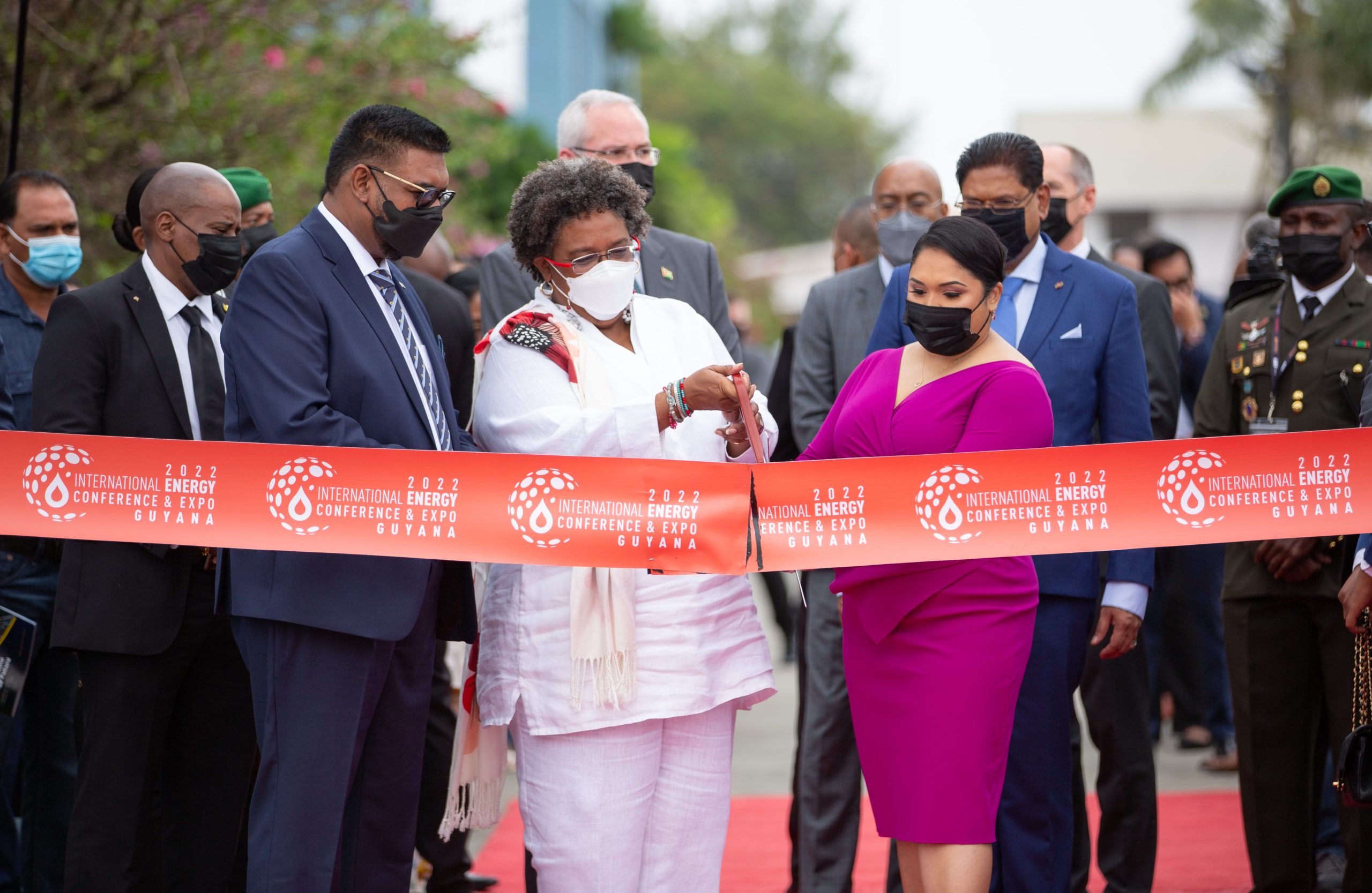
Prosperity for Guyanese ‘as quickly as possible’ is plan for oil funds – President
By Kurt Campbell
President Irfaan Ali on Tuesday vowed that Guyana will neither back down from its aggressive pursuit of the energy sector nor its commitment to climate change.
The development of the oil and gas sector will propel Guyana to lightning speed economic and economic transformation thanks to the hundreds of billions of Guyana dollars to be earned from oil revenues.
“You don’t need to second guess us… you don’t need to read between the lines… we are telling you as straight as it can be, the path we are pursuing must bring prosperity to people as quickly as possible.
“This is a path we are not deviating from,” Dr Ali said as he delivered his feature address at the 2022 International Energy Conference at the Marriot hotel in Georgetown.
Dr. Ali said Guyana will stand by the commitments it made even before the discovery of oil here but he noted that it will do nothing to slow the country’s development using its oil and gas resources.
The President also declared the country open to investors and capital – an “open door policy” as he labelled it – but posited that those interests must come at the right price, ensuring that it benefits citizens and are in tune with the national development plan.
On the energy front, the President found himself reiterating statements he uttered in recent months, both locally and internationally, that Guyana was pursuing a renewable energy mix of natural gas, solar, wind and hydro.
“Believe it or not, it is the utmost priority on the agenda of the Government of Guyana,” he stated.
Guyana has committed to cut its dependency on fossil fuels by over 70 per cent by 2030.
“We are not shying away from that global responsibility. We have made these commitments and intend to commit,” Dr. Ali said.

Dr. Ali was adamant that the implementation of the country’s decades-old Low Carbon Development Strategy (LCDS) which was recently updated will ensure that energy plans are consistent.
He made it clear that Guyana will remain strong on climate change but will not shy away from pursuing a development path of oil and gas.
“I want to state directly the narrative so there will be no need for interpretation. We are pursuing this path and we the responsibility… we will continue to find space and place to bring global solutions.”
Dr. Ali reasoned that the development of an energy mix and the responsible exploitation of oil and gas resources will help to diversify the economy, “building out many new pillars.”
“Long-term development, not isolated policies.”
Dr. Ali talked up Guyana’s global leadership in climate change, eco-systems and biodiversity, reminding that the country presents 18.3 million hectares of standing forests which stores 19.5 gigatons of carbons worth conservatively US$195 billion.
Deforestation currently stands at 0.05%, allowing the country to harvest one million cubic meters a year but only 400,000 is being harvested at present.

“This has always been. We never had capital or resources to build the Guyana we always spoke of… today with hard work, simplicity and humility we have the ability to make that giant leap for Guyana and all of humanity,” the President added.
He maintained through it all that the country will strike the balance between rapid economic development and preservation of the environment while bolstering human development.
Meanwhile, the Prime Minister of Barbados Mia Mottley emphasised that developing countries, like those in the Caribbean, must now be able to exploit their resources to help them ‘catch up’.
These developing countries, she explained, have been beset by numerous challenges stemming from their exploitation and colonisation by developed countries.
But this consideration comes amid the global conversation on reducing the use of fossil fuels because of their harmful effect on the environment. This, potentially, means that Guyana and other Caribbean countries cannot fully exploit their oil and natural gas resources.

“Net zero does not mean no fossil fuels but it means offsetting the use of fossil fuels,” the Prime Minister said, however.
Countries have been talking up efforts to reduce the use of fossil fuels and use more renewable energy sources. Barbados and Guyana are among those that have pledged to reduce emissions significantly by 2030.
These efforts combined with forest-saving plans will help to offset the harmful emissions produced from fossil fuels.
Still, Prime Minister Mottley reminded the gathering that there will still be some demand for fossil fuels, despite the slow transition to more renewable energy sources.
As such, she asked, “The question is who should provide those fossil fuels?”

She posited that new oil producers like Guyana, Suriname and soon even Barbados should be able to benefit from the production and sale of fossil fuels- simply because these countries are among those that have long been exploited by the developed world.
Further, she pointed out that traditional exploitation and underdevelopment is exacerbated by developing countries’ vulnerability to natural disasters such as flooding and hurricanes.
“We cannot save the earth and sacrifice our people,” Prime Minister Mottley said pointedly.





